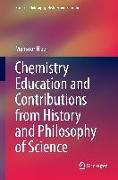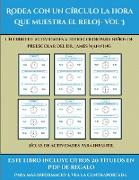Chemistry Education and Contributions from History and Philosophy of Science
BücherAngebote / Angebote:
This book explores the relationship between the content of chemistry education and the history and philosophy of science (HPS) framework that underlies such education. It discusses the need to present an image that reflects how chemistry developed and progresses. It proposes that chemistry should be taught the way it is practiced by chemists: as a human enterprise, at the interface of scientific practice and HPS. Finally, it sets out to convince teachers to go beyond the traditional classroom practice and explore new teaching strategies.
The importance of HPS has been recognized for the science curriculum since the middle of the 20th century. The need for teaching chemistry within a historical context is not difficult to understand as HPS is not far below the surface in any science classroom. A review of the literature shows that the traditional chemistry classroom, curricula, and textbooks while dealing with concepts such as law, theory, model, explanation, hypothesis, observation, evidence and idealization, generally ignore elements of the history and philosophy of science. This book proposes that the conceptual understanding of chemistry requires knowledge and understanding of the history and philosophy of science.
¿Professor Niaz¿s book is most welcome, coming at a time when there is an urgently felt need to upgrade the teaching of science. The book is a huge aid for adding to the usual way - presenting science as a series of mere facts - also the necessary mandate: to show how science is done, and how science, through its history and philosophy, is part of the cultural development of humanity.¿
Gerald Holton, Mallinckrodt Professor of Physics & Professor of History of Science, Harvard University
¿In this stimulating and sophisticated blend of history of chemistry, philos
Folgt in ca. 15 Arbeitstagen




